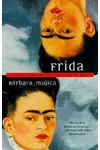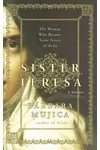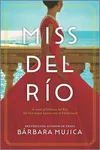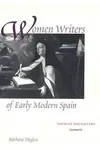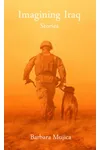Picture a storyteller who weaves vibrant tales of art, history, and human struggle—meet Bárbara Mujica! This American novelist, scholar, and veterans’ advocate has captivated readers with her intense prose and biographical novels like Frida and Miss del Río. From her academic roots at Georgetown University to her award-winning fiction, Mujica’s journey is as compelling as her stories.
Born in Los Angeles, Mujica’s life is a tapestry of literature, culture, and service. Her work spans historical fiction, short stories, and essays, earning her a place among literary greats. Whether exploring Frida Kahlo’s passion or the toll of war, Mujica’s writing is both illuminating and deeply human.
The Making of Bárbara Mujica
Mujica’s love for storytelling began in Los Angeles, where her fascination with Mexican cinema sparked early inspiration. She studied French literature at UCLA and the Sorbonne, later earning a doctorate in Spanish literature from New York University. Her academic career flourished at Georgetown University, where she became a professor emerita specializing in early modern Spanish literature. Mujica’s scholarly work on mysticism and women’s writing laid the foundation for her fiction, blending rigorous research with vivid narrative. Her son’s service as a U.S. Marine also shaped her advocacy for veterans, making her a pivotal figure in Georgetown’s top-ranked veteran support program.
Bárbara Mujica’s Unforgettable Stories
Mujica’s novels are a masterclass in historical fiction, bringing iconic figures to life with emotional depth. Her breakout novel, Frida (2001), an international bestseller translated into 18 languages, dives into the fiery relationship between Frida Kahlo and Diego Rivera. Critics praised its vivid prose and psychological insight. Sister Teresa (2007) reimagines the life of Saint Teresa of Ávila, blending faith, politics, and sisterhood against the backdrop of the Spanish Inquisition. I Am Venus (2013), a Maryland Writers’ Association winner, explores the mysterious model for Diego Velázquez’s Rokeby Venus. Her latest, Miss del Río (2022), chronicles Mexican film star Dolores del Río’s rise in Hollywood, earning accolades from The Washington Post as one of the best historical novels of its year.
Mujica’s short stories, like those in Imagining Iraq, tackle war’s emotional toll with authenticity, drawing from her veterans’ advocacy. Her style—described by Kirkus Reviews as vigorous and intense—marries dark themes with illuminating hope, making her work resonate across cultures and genres.
Why Bárbara Mujica Matters
Mujica’s impact extends beyond the page. Her novels have introduced readers worldwide to Latin American and Spanish cultural icons, while her short stories amplify marginalized voices, especially those affected by war. As a scholar, she’s shaped early modern Spanish studies, with works like Women Religious and Epistolary Exchange earning the GEMELA Prize. Her veterans’ advocacy transformed Georgetown into a haven for military-connected students, earning her a Presidential Medal in 2015. Mujica’s ability to bridge academia, fiction, and social good makes her a literary force whose stories endure.
- Born: Los Angeles, California
- Key Works: Frida, Sister Teresa, I Am Venus, Miss del Río
- Awards: E.L. Doctorow International Fiction Competition, Pangolin Prize, GEMELA Prize
- Notable Role: Professor Emerita, Georgetown University
Ready to dive into a world of art, history, and heart? Grab Frida or Miss del Río and discover Bárbara Mujica’s unforgettable storytelling!
